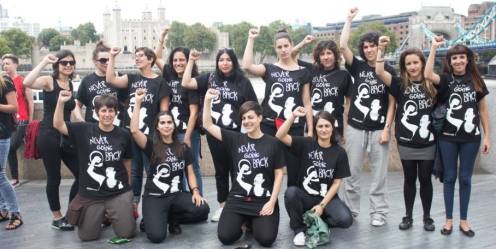Spanish media was awash this weekend with articles stating that the country’s antiabortion draft bill had been shelved. Even The Guardian caught wind of the news, despite the fact that the Spanish abortion bill has been largely conspicuous by its absence in British media since the proposed legislation was announced in December 2013. For a man as arrogant as the Spanish Justice Minister, Alberto Ruiz-Gallardón, whose personal mission (and obsession) was the abortion reform, it must have been a humiliating experience. Prochoice and feminist organisations in Spain and abroad celebrated the news on Twitter and Facebook.
And then amid the celebrations, sources from within the Spanish Justice Ministry reported being absolutely unaware of any annulment of the bill. “We are seeking the maximum consensus within the party and finalising the details of the final draft”, a Justice spokesperson confidently stated.
Gallardón: undermined by Rajoy and his own party

Spanish Justice Minister, Alberto Ruiz-Gallardón
It seems government sources had leaked Prime Minister Rajoy’s intention to halt the bill’s process, a decision that was made without consulting the Justice Minister. Rajoy is uneasy about the bill’s unpopularity and does not want it affecting the Popular Party’s upcoming electoral campaign. It is clear that Gallardón has been seriously undermined by Rajoy and other key members within his own party. Indeed, the Spanish right-wing newspaper ABC reported yesterday that Gallardón plans to step down if the abortion bill is withdrawn, a development he apparently communicated himself to the newspaper. ABC then updated its article by stating that Gallardón would make the decision as regards to his political career in a week. Moreover, just a few hours ago, the Spanish daily El Mundo reported Gallardón’s intention to discuss the abortion reform next week as he is currently very busy with Catalonia’s “sovereignty” issues.
Isolated within his own party and seriously undermined by the Prime Minister, Gallardón is scrambling to figure out how to save face. Watch this space to follow the latest developments and see what moves are the next he makes.



























































































































































